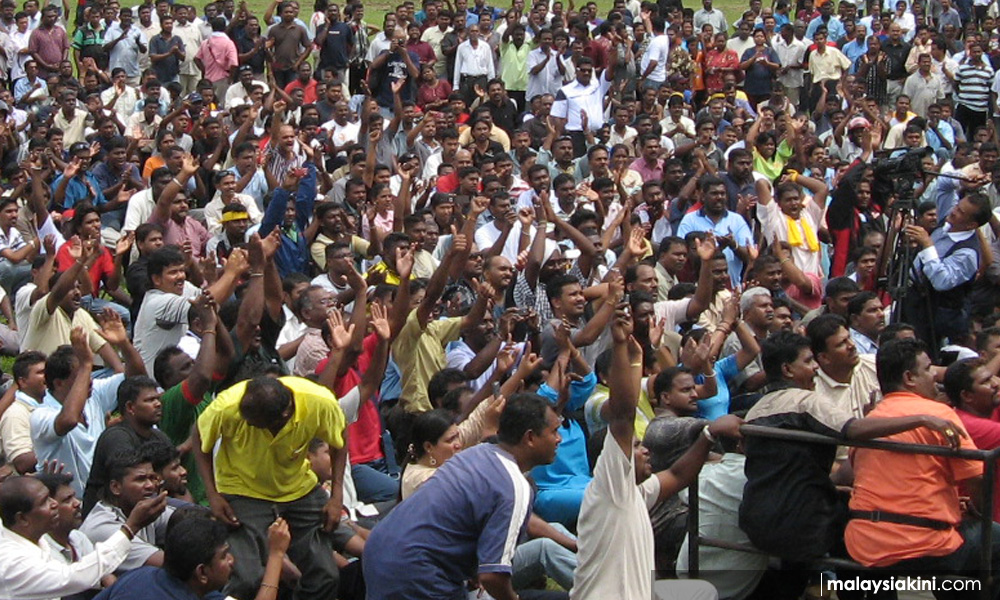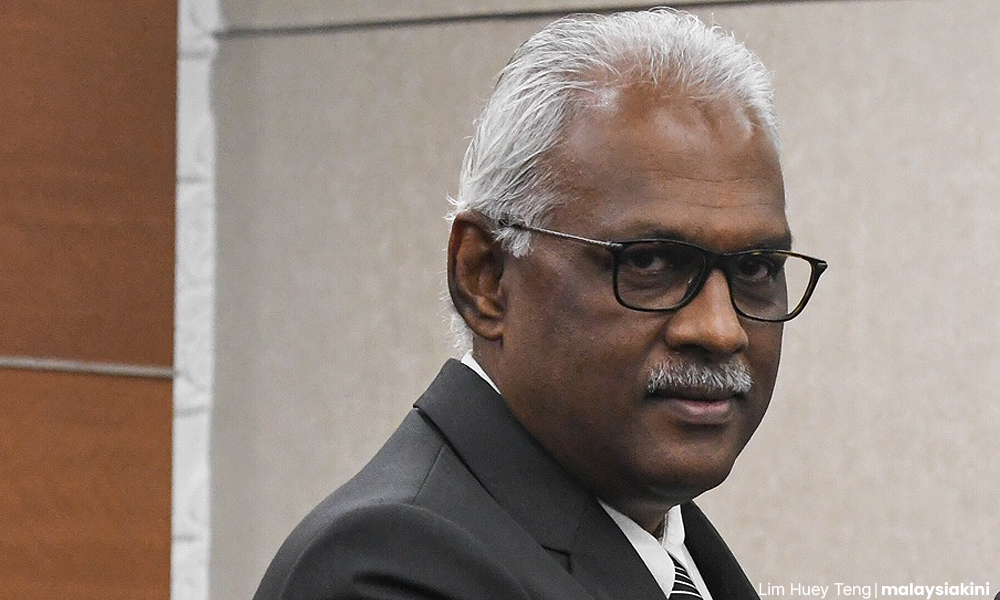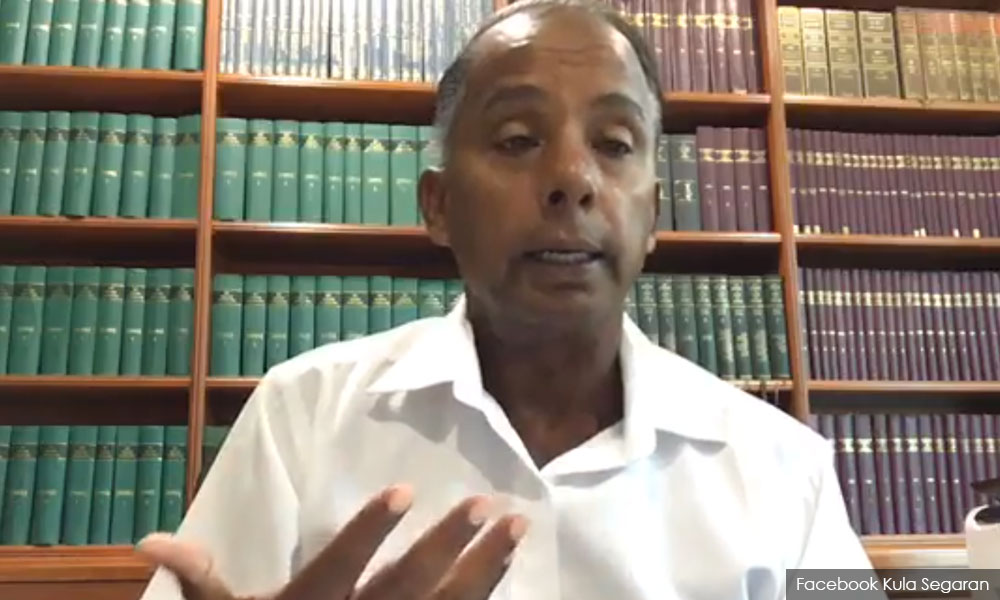“Emotion over logic. They didn't think. They just reacted, so they let me dictate. There are no victims. Only volunteers.”
– D (Chance, TV series)
Every time an election comes around the corner, we (and by “we” I mean Indians) get these hokey “pull yourself by your bootstraps” narratives meant to drive home the point that as an ethnic group we need to be independent of the system and stop playing the victim card.
This implies that successful communities or polities are independent of the system, which is complete horse manure.
Fa Abdul continues this tradition with her latest piece about a poor Indian gardener and the benevolent Aunty Devi, who was some sort of bourgeois guardian angel (from humble beginnings no less) and handmaiden to the happy ending of his familiar story.
Honestly, Indian gardeners’ done good are the equivalent of the hooker with a heart of gold fables in the Western pop culture canon.
I do not have such stories. I have a story about the big brute of an Indian thug who worked as a bouncer, whose wife ran away leaving him with two kids (whom he loved) and a mother-in-law (who he could not stand) but had to look after.
He worked the club circuit in KL and moved into a crappy shophouse so his kids could go to a nice suburban school.
He made sure they watched English TV series so they could "speak properly" and saved every ringgit he earned, including tips and other valuables he got from busting heads for more well-to-do Indian, Chinese and Malay club kids.
His children did well and got into local law and accountancy programmes, but their father died with a knife to his throat before he could see them settled down with families of their own.
Every year the kids take turns keeping the urn of his ashes in their respective homes because they never really communicated with him when he was alive.
You see, watching English shows led to reading books in English and they soon lost their ability to communicate effectively in Tamil, especially after their grandmother passed away. He always told me he was slowing down but was glad his kids (especially his son) were not in his line of work.
Or how about the Indian woman police inspector who worked the drug beat and came upon the idea of opening up a “security service” after she retired because she could employ young Indian males to patrol the streets of middle-class neighbourhoods because at least this way, they would not have to deal with the state security apparatus which she knew very well could mean life or death for them but most importantly was a way to make money through the political (Malay) contacts and business (Chinese) contacts she made over the years.

"I'm doing the same thing now, as I did before, Thaya, keeping people with money feel safe". She really doesn't worry about Indian youths that much these days because she says the Malays have to compete with all these "foreigners" who are coming into this country and doing a better job of making this their home.
She worries that ethnic strife will occur because Malays will finally understand what it means to be a pendatang in their country and politicians do not see the danger in these foreigners. Not very politically correct I know, but life on the streets in Malaysia is not politically correct.
And really bullying in school by being called “keling”. Hate to break it to the readership but most young disenfranchised Indians have gotten in touch with their inner kelings much better than privileged community members have.
Indian activists complain more about the fact that disenfranchised Indians do not get the same opportunities as their bumiputera counterparts when it comes to education and so-called Aunt Devis are as tangible as urban legends. This is where the struggle is and not in some out-of-touch pity party narrative pushed forward by urban types.
Jakim has programmes targeted at disenfranchised Indians and has independent Indian preachers who specifically target vulnerable groups. This is what young disenfranchised Indians are dealing with in this country as are Indian activists who do not get air time on mainstream English supposedly independent press.
In other words, the system is specifically targeting vulnerable Indians, with the agenda that assimilation would give them better lives. This is what people are dealing with.
So it is not as if Indians are sitting around throwing pity parties. Blaming Indian politicians for supposed narratives that make urban privileged voting demographics feel better about not having political operatives that really want to address the systemic inequalities is what this is all about.
Great disservice
This is why I really admire PSM political operatives. Young Indians, Malays and Chinese who understand that the system impacts their lives with an immediacy that young Muda political operatives ensconced in the mainstream political process would never understand, but yet are venerated as the saviours of this country.
So yeah, reject PSM when all evidence indicates that change will eventually come to this country through grassroots agitations in the dominant Malay community.
Our Indian politicians are doing us a great disservice by imprisoning us inside the victim mindset, wrote Fa, and I wished she had named names.

Here is Charles Santiago talking about this sorry state of affairs in our education system here. “Such discriminatory practices that deny children a better future just because of their race would only end up sowing hate and animosity amongst the different races. So, instead of lamenting about the state of education, (Education Minister) Mohd Radzi (Md Jidin) must instead create a system that’s fair to all Malaysians irrespective of race or religion.”
So is Charles playing the victim card or is that solely a BN play?
Or how about M Kula Segaran of the DAP saying this in 2017 – “In 1970, there were over 17 percent Indians in the civil service. Now there are less than five percent Indians in the service. The GLCs are dominated by the Malays, while the Chinese are strongly represented in the private sector. Indians inhabit the margins of both the civil and private sectors.
“To effectively assist the Indians, unless all issue affecting the community is unearthed and ascertain the shortcomings with the Indian society nothing much can be achieved. So far the plans and policies are ad hoc and an eyewash just to shore up support from the Indian Community!”
And of course this gem from Fa: "Sadly, many of our Indian people seem controlled by anger, thanks to our politicians. We carry our rage from childhood into adulthood, believing that we are oppressed and weak. And for everything that happens to us, we blame our skin colour." Really?
Let us take education for instance since this is the battleground. Since public education is mired in racial and religious supremacy, non-Malays have had to resort to private education. This was not done in any sort of racial calculation but rather because of survival.
This, in turn, developed two separate cultures in young people, the first based on racial and religious privilege and the second based on resentment. This feeds into the private sector which, of course, is part of the larger capitalist narrative of this country which profits from divisions in societies if left unchecked.
Pakatan Harapan uses this anger and resentment because it is easier to galvanise instead of addressing the fundamental issues of the way education separates us around racial and religious groups.

Hence racial strategies of the non-Malays are complicit in maintaining divisive politics because the realpolitik of Malaysia is that if we, non-Malays, do not employ these strategies, there would be no line in the sand when it comes to racial and religious supremacy.
It also means that we can never really have an honest dialogue about race because we are part of the problem.
On the one hand, Indian politicians are blamed for victim narratives, and on the other Indians are told not to wallow in victimhood which most of them do not.
But of course the victimhood of the Chinese community with partisans calling this an apartheid state and hard luck stories of the state oppressing the educational, social and economic rights of the Chinese community is the gold standard in minority narratives even though the economic and social realities are completely opposite from these narratives.
Doesn’t Fa see the victim ideology in everything Harapan does? Everything wrong with this country is blamed on Umno/BN and racism.
Harapan's brief stint in government a failure? Blame the Sheraton Move. Blame Dr Mahathir Mohamad for the failings of Harapan.
Blame Umno/BN for the systemic racism and when Harapan was in power they gave more to the Malays because they feared any sort of egalitarianism would mean spooking the Malays.
Malays not voting for DAP, blame the propaganda from Umno and not the strategies employed by the DAP for decades to secure the non-Malay vote instead of building a truly multi-racial party.
This is the essence of the rage and victimhood that Fa thinks resides solely in her community.
We get the government we deserve and no matter how vocal the toxic supporters are on social media, things are not going to change until we hold accountable anyone who is voted into office and stop perpetuating narratives that help the political elites in this country.
Otherwise, we are all volunteers. - Mkini
S THAYAPARAN is Commander (Rtd) of the Royal Malaysian Navy. Fīat jūstitia ruat cælum - “Let justice be done though the heavens fall.”
The views expressed here are those of the author/contributor and do not necessarily represent the views of MMKtT.

No comments:
Post a Comment
Note: Only a member of this blog may post a comment.